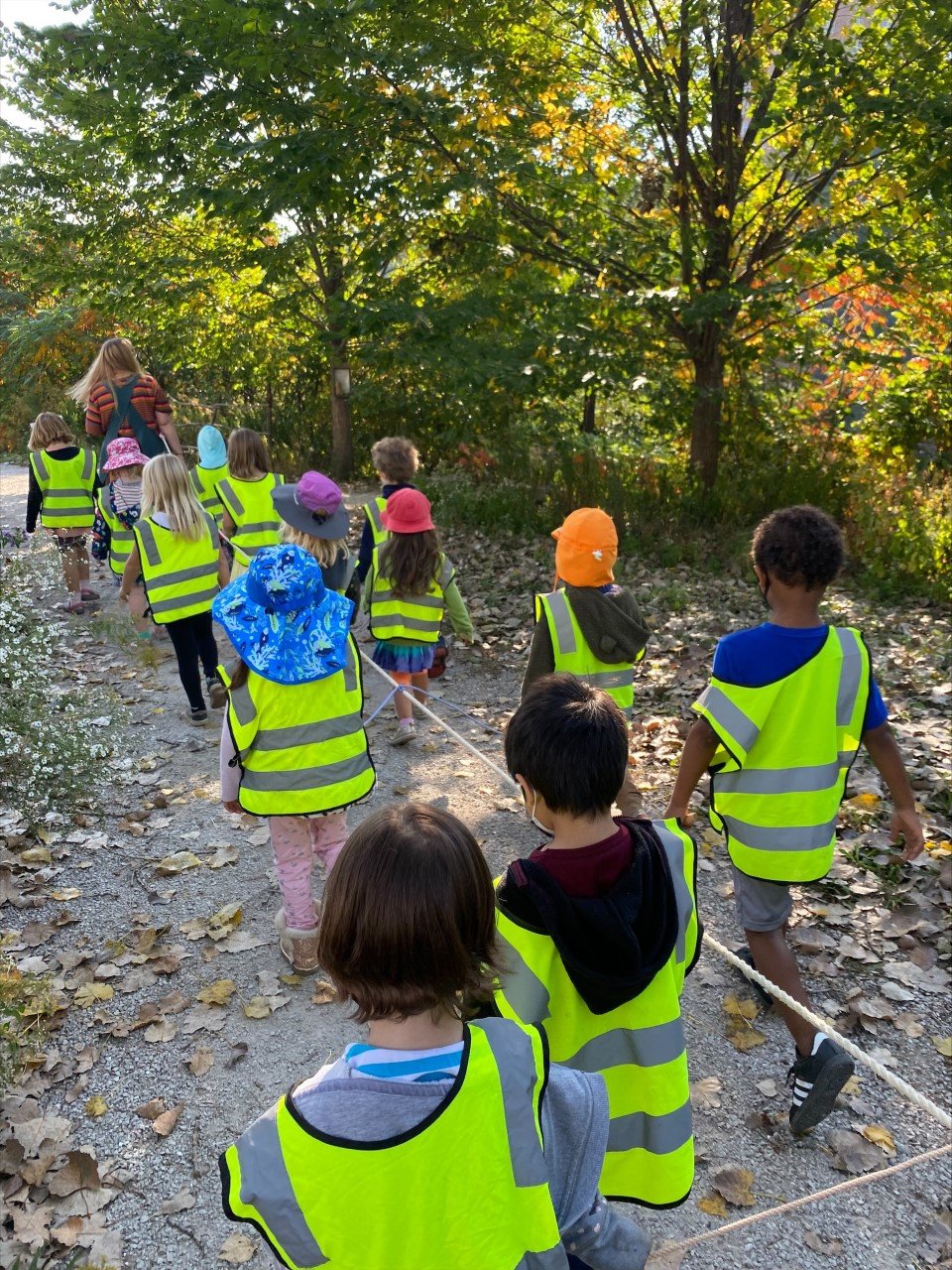A Greener Childhood Associated with a Happier Adulthood
New research indicates that access to the outdoors in childhood is strongly associated with happiness, mental health and well-being in adulthood. That’s one of the many reasons Waldorf schools prioritize outdoor learning and recreation for our students. Not only are outdoor spaces great places to move, discover and develop curiosity, they also help our students feel balanced, refreshed and ready to learn.
Tamarack has always prioritized outdoor time for all ages, but the pandemic doubled the amount of time students spent outdoors, converting daily lessons to be delivered in nature. With no green space on our campus, Tamarack teachers take classes to local parks, the riverfront or lakeshore, toting blackboards, supplies and books in wagons.
Being outside “really lends to the social nature of learning,” says Melissa Carpenter, Tamarack’s fourth grade teacher. “Outside offers a sense of social health that the students have been craving.”
Fifth grade teacher Kim Bair was a landscape architect previously. As a parent, she says it’s always been a priority to be outdoors with her children as much as possible.
“Many studies show the benefits, and I experienced them myself,” she says. “Better physical health, better mental health, better cognition levels. I saw the therapeutic healing properties of the outdoors.”
To make outdoor learning even more of a priority, Tamarack has recently hired Peter DeBoer as our Environmental Education teacher. Students have two 45 minutes sessions weekly that will take place both outside and inside the classroom that focus on our impact on the environment. “When we have the chance to be outdoors, it sharpens and satisfies a natural inclination to want to experience the world directly, through our senses.”
Even the youngest children are capable of walking distances to green spaces, says Faith Danneil, early childhood teacher. Playing outside in natural spaces helps develop important skills, like the ability to balance, run, skip and climb. “It’s really healthy for children to be touching natural materials,” she notes.
Tamarack was recently featured on three local news segments that showed positive results with our increase in outdoor learning education. See and hear those stories here.
Spending time outdoors can have a positive immediate effect but also impacts a person later in life.
In this article from National Public Radio, Kristine Engemann, a biologist from Aarhus University in Denmark who lead this study said “What's more, the effect of green space was "dosage dependent" — the more of one's childhood spent close to greenery, the lower the risk of mental health problems in adulthood.”
"You could grow up in very urban areas but still have reduced risk if you're surrounded by green spaces," says Engemann.”
Learn more about Tamarack and our dedication to outdoor learning in a virtual tour. Enrollment for the 2022-23 school year opens soon. Schedule your tour today below!
Some of the information in this blog came from a press release written by Lynne Golodner of Your People LLC, the marketing firm we worked with to secure these media stories about our school.




